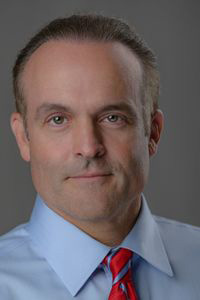The Sept. 14 California 2021 Gubernatorial Recall Election asks voters two questions: first, do they want to recall current Gov. Gavin Newsom and second, who should replace him if he is ousted. Brandon Ross, a practicing physician and surgeon who also holds an active license to practice law is running for the seat currently filled by Newsom and calls it a stopgap measure.
“I don’t want to see a Republican in the Governor’s chair and when I looked at the candidates, I just didn’t see anybody that was qualified. I thought ‘Okay, I’m a doctor, I’ve got a business background and a law background. I don’t want to be a career politician but I have the right background’,” Ross said.
Any candidate elected to fill the possible slot would serve for about 18 months until the next regular election but “if there’s a Republican in there and something happens to Dianne Feinstein, that flips the whole thing,” Ross said, looking at what he considers a worst-case scenario.
Generally, he would like to see more healthcare and mental healthcare options for all Californians.
“If nothing else, I hope to at least be an inspiration to addicts and their families,” Ross said.
The University of California, Davis and Tufts University alumnus is open about his own struggle with opioid abuse, a habit he acquired after a surgery-related prescription escalated to addiction. Ross surrendered his medical license and attended a rehabilitation program followed by law school, but returned to practicing medicine after his license was reinstated in 2018.
He currently runs La Mesa Medical Hair Restoration as well as overseeing non-profit Children’s Hair Restoration Foundation where he provides permanent hair restoration services for children and teens who have been through radiation treatment.
“I think that it’s too hard to find Rehabilitation Services and that should be free for anybody in California that has a problem,” Ross said.
He would like to see early opioid abuse education implemented in schools as well as free treatment, both funded by opioid-related legal settlements.
“A big part of the opioid crisis was driving people to use more and downplaying the studies that showed the addiction potential. Now, there’s billions in settlement dollars that are coming in and need to be put directly into opioid treatment and education programs,” Ross said.
A second point he stands on: he would like to see more homes built in California, including single-family homes, low-income housing and homeless shelters.
“We really need to increase the supply of homes. The demand is high but the supply is not there. Build more state-funded homeless shelters, more state-funded housing projects— that should be on the public’s dime to make sure there’s enough. Doing so gets the lowest rung of people out of the streets and in homes, but it also gets people who are living below poverty level into an actual home as well,” Ross said.
Homeless shelters, he said, should each have case managers that are realistically proportionate to the number of residents housed there, a gatekeeper to services.
“Each person in these complexes should be entitled to CalFresh so they can be well nourished. They should be entitled to occupational therapists if they need to build new skills so that they can sustain a job and make money. They should have health care and they should have mental health care treatment,” Ross said.
Although he does not believe providing shelters with those programs in place will guarantee everyone comes off the streets “because some people don’t want to come off the or come off drugs,” he also believes those components would help the great majority of homeless Californians “turn things around” and get back on their feet.
To offset the cost of those shelters, he would like to see anyone making $2 million or more annually pay 20% in income tax. At the same time, he would like to eliminate income tax for anyone making $150,000 or less.
Besides building more state-funded shelters, he thinks the state needs to relax permitting standards for traditional homes and that environmental considerations should be looser.
“I do like the environment but come on, some things are more important and if you’re shutting down a big chunk of land because of some type of frog… know that not everyone has a place to live and we have to be realistic,” Ross said.
Ross also would like to undo State Bill 1’s ‘gas tax’ that was passed in 2017, “a negative as far as the environment if people buy more gas,” but also a possible source of savings that could lead to a hybrid car purchase, he said.
Additionally, he’d like to see public transportation systems built up, including regional transportation systems for daily commutes and repetitive trips near home.
“For long trips, say a vacation to Yosemite, that’s a different story,” Ross said with a smile.
If elected, he would also propose funding wildfire prevention resources like a task force that goes door-to-door and takes a granular look at fire hazards in each homeowner’s yard as well as firefighting tools like helicopters that can fight fires during cooler night temperatures.
“I try to balance things. I was an Independent for the longest time until 2019, but I hated Trump and it made me go left. I did not like his schtick at all, I thought he was very divisive and tore the country up, not a unifier at all,” Ross said.














